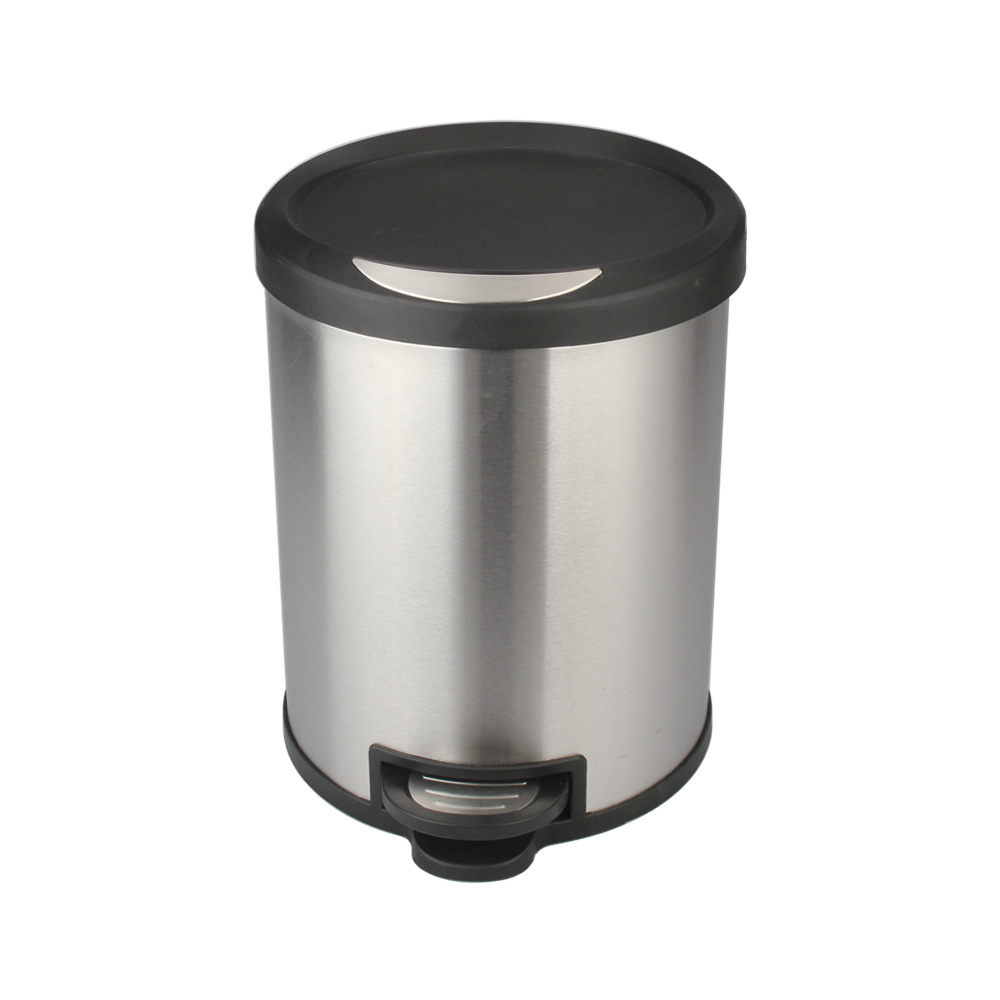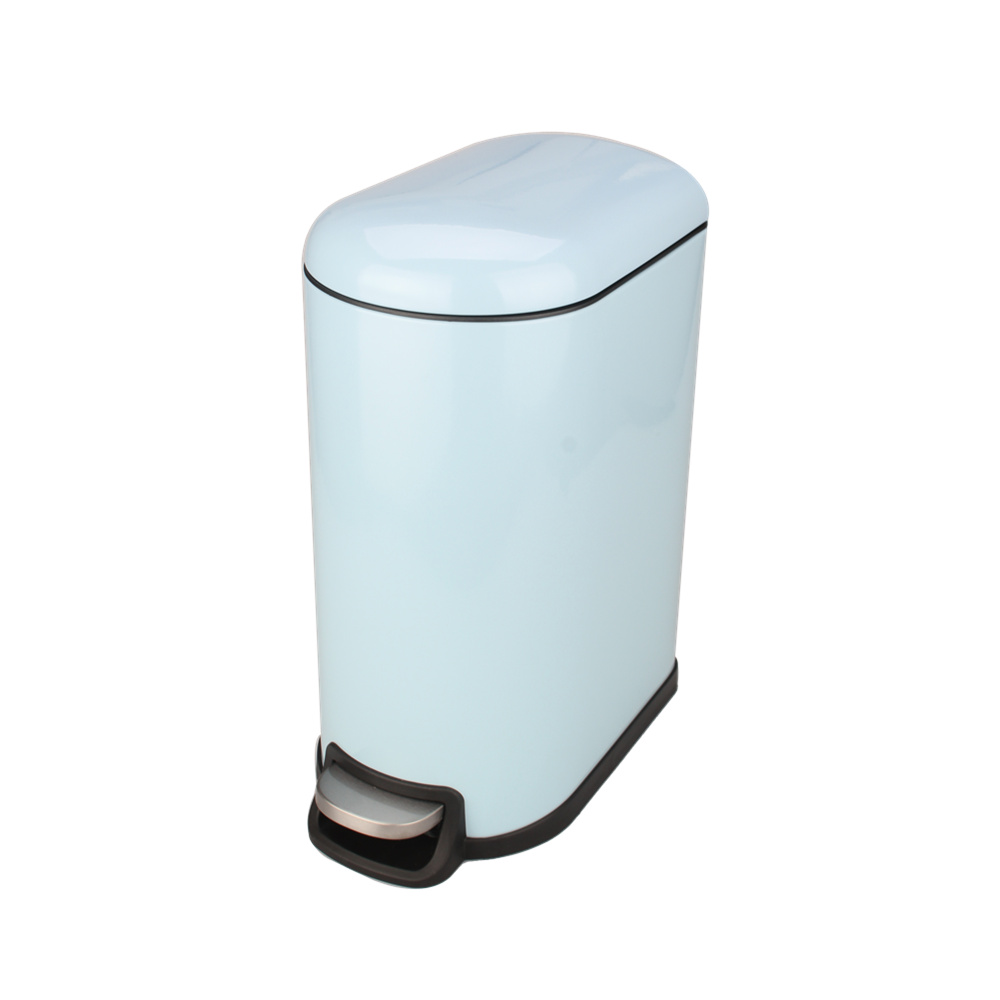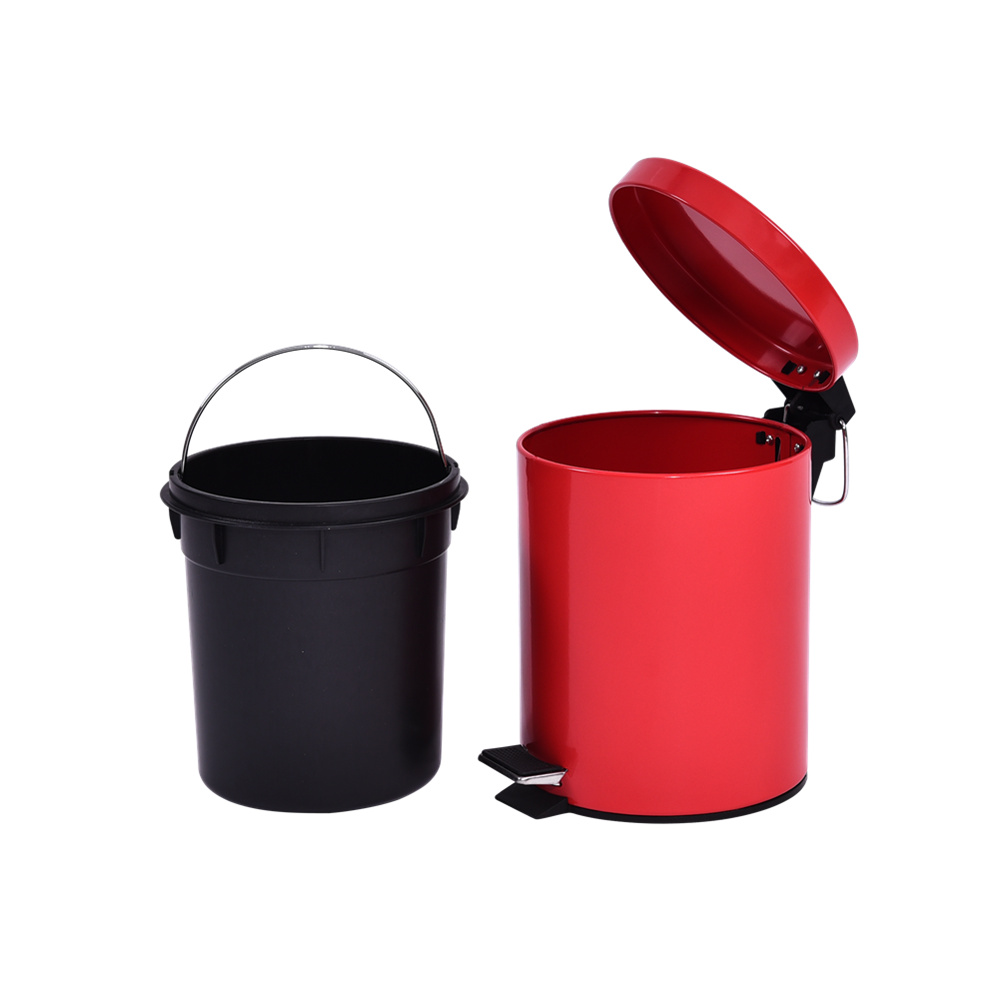Pedal Bin
1. Hands-free opening with a foot pedal to prevent the spread of germs.
3.Perfect way to store trash in your kitchen, office, wherever space is limited .
4. Inner compartments are removable and holds much crash.
FAQ:
1:How can
I get the sample?
We can
provide the sample for customers to check the quality.
Please
kindly provide the delivery info for calculate the sample cost. If you have DHL
/TNT/UPS/FEDEX account, please also kindly provide it to us.
You can
do the payment of sample via T/T and PayPal.
2:How
about the sample time?
Usually
the sample time is 7~10 days after have the sample cost.
3:How
long will it take for mass production?
Usually
45~60 days after have the deposit.
4:Can we
have our logo or company name to be printed on your products or the package?
Welcome
OEM.
5:what
certificate can you provide?
CE,CB,GS,FDA,LFGB,ROHS
are available here.
6:How can
we get your monthly new products announcement?
Please join our mailing lists.
Compost Bin,Oval Shape Pedal Bin,Stainless Steel Dust Bin,Stainless Steel Pedal Bin Jiangmen Wellway Houseware Co.,Ltd , https://www.hkwellway.com
The slowdown in the growth rate of China's automobile production and sales will inevitably be transmitted to the auto parts industry. In 2012, the general growth rate of domestic auto parts companies slowed and their performance declined. What has added to this is that while being dragged down by the domestic vehicle industry, domestic auto parts companies are further threatened by multinational auto parts companies, and many auto parts companies have become increasingly difficult to survive. In the face of internal and external problems, technological upgrading has become the key to the breakthrough of domestic parts and components companies.
Slower growth slows performance
Due to the slowdown in the growth of the entire vehicle industry, the parts and components industry fell into a dilemma of slower growth and lower performance in 2012.
In terms of growth rate, taking the engine industry as an example, in 2012, China's annual production and sales volume totaled 17.5381 million units and 17.5259 million units, which was a year-on-year increase of 4.90% and 3.27%, respectively, while the lukewarm diesel engine market dragged down the year-on-year growth of the entire industry.
In terms of performance, according to Wind data, among the 57 listed companies in the auto parts sector, there were 37 listed companies with a year-on-year drop in net profit in the first three quarters, and there were as many as 21 listed companies that had total operating revenue and net profit. Both are falling. Judging from the 2012 performance forecast announced by auto parts listed companies, the performance of most listed companies has dropped significantly. The net profit of many listed companies, such as West Pump Co., Ltd., and Silver Wheel Co., Ltd., fell by 40%-80% year-on-year.
Internal problems are still outside
"Zero contradiction" has always been an old topic in the automotive industry. In 2012, the growth of auto sales slowed down. The incidents involving the use of spare parts enterprises by vehicle manufacturers occurred more frequently. Some vehicle companies ignored the interests of spare parts companies. Sequential claims have been on the rise, and spare parts companies have been experiencing increased pressure for survival.
With the slowdown in the growth of the auto parts industry and the declining performance, a series of chronic diseases that have existed in the auto parts industry in China have been exposed again. Including: unreasonable industrial structure, small scale, poor overall efficiency, low international competitiveness, unreasonable product structure, low value-added products, low R&D investment, and low independent R&D capability; product standardization, serialization and generalization Low. Behind this series of problems is the low level of management of Chinese auto parts companies.
In addition to internal worries, there are more external problems. In 2012, international auto parts companies further increased their domestic presence and continued to invest in and build factories. Although the entry of international auto parts companies can bring benefits in terms of capital and technology to the development of China's auto parts industry, its suppression of the technology and market share of domestic auto parts parts companies is also very obvious. . On the other hand, the increase in trade friction has also brought about no small challenge to the auto parts industry. On September 17, 2012, the United States filed a complaint with the World Trade Organization accusing China of subsidizing exports of parts and components, which was already the second complaint of the United States in 2012 regarding China’s auto-related issues.
Technological upgrading is the way out
The research report believes that the auto industry is still in the midfield of cycle adjustment. Under the pressure of energy security, it is hard to expect auto stimulus policies. Low-speed growth and structural adjustment are the main melody of the auto industry in the future. Only companies with core competencies, good business models, and proactive adjustments will have good performance. Most companies in parts and components companies have negotiating power similar to that of dealers. In the process of game with OEMs, they lack bargaining power, and the impact of matching prices on their profitability may be greater than sales.
In the face of the unfavorable situation of internal and external problems, technological upgrading has become the key to many companies seeking to break through.
In 2012, domestic auto parts companies accelerated overseas mergers and acquisitions, entered the international high-end market, and actively participated in international competition. During the past year, companies such as Ningbo Huaxiang, Sichuan Bohong Group, Weichai Power, and China Weapons Industry Group continued their actions, and the purpose of overseas acquisitions was not to look for the advanced technologies of the target companies.
On the other hand, domestic parts and components companies have stepped up their efforts in technological R&D to meet future market competition. In 2012, Jiangsu Chaoli successfully developed the BSG light-mixed start and stop devices, and gained a lot of energy-saving and emission-reduction technologies. Weichai Power independently developed heavy-duty diesel engine high-voltage common-rail electronic control system ECU, which broke the foreign companies in the Monopoly in the field.


